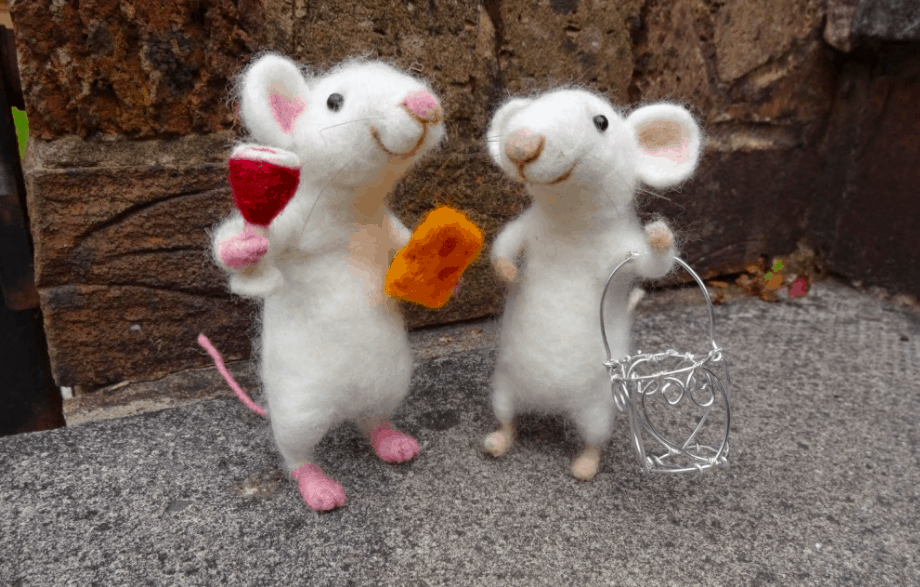Nothing defines a culture as distinctly as its language.
And the element of language that best encapsulates a society’s values and beliefs is its proverbs – a collection of sayings providing words of wisdom about how to best live your life.
Called “οι παροιμίες” in Greek, proverbs are simple, concrete, traditional and often metaphorical sayings that express perceived truths based on common sense or experience.
Since ancient times the Greeks have long imparted wisdom to the world by way of proverbs, which can be found in ancient Greek literature as far back as the works of Homer.
Greek proverbs have long provided inspiration to people around the world. Here is a list of some of our favourites.
Είπε ο γάιδαρος τον πετεινό κεφάλα
English translation: The donkey called the rooster big-headed
Meaning: When someone criticizes another person for a fault he himself has – the Greek equivalent to the English ‘the pot calling the kettle black’.
Αγάλι-αγάλι γίνεται η αγουρίδα μέλι
English translation: The unripe grape becomes as sweet as honey, at a slow pace
Meaning: It takes time to grow ideas, projects or people into something beautiful, bigger or better. If you are patient you will get what you want.
Όταν λείπει η γάτα, χορεύουν τα ποντίκια
English translation: When the cat’s away, the mice will dance.
Meaning: When a person in authority is not present, the sub-ordinates will do as they please, disregarding or breaking rules.
Μάτια που δε βλέπονται, γρήγορα λησμονιούνται
English translation: Eyes that don’t see each other quickly forget each other.
Meaning: Out of sight, out of mind. You soon forget people or things that are no longer visible or present.
Η καμήλα δε βλέπει την καμπούρα της
English translation: the camel does not see her own hump
Meaning: We easily criticize and point out the faults and weaknesses of others but we fail to see our own. Similar to the English ‘The pot calling the kettle black’ – don’t judge others and call them out for their faults when you have your own and quite possibly just can’t see them.
Όποιος είναι έξω απ’τον χορό, πολλά τραγούδια ξέρει. OR Έξω απ’ το χορό λες πολλά τραγούδια
English translation: From outside the dance-circle, you sing a lot of songs
Meaning: It is easy to criticise or be an expert about something if you do not do it yourself. It’s easier said than done.
Η γλώσσα κόκαλα δεν έχει, αλλά κόκαλα τσακίζει
English translation: The tongue doesn’t have bones but bones it crushes., meaning that the power of words can hurt.
Meaning: The pen is mightier than the sword. The power of words can hurt.
Oι πολλές γνώμες βουλιάζουν το καράβι
English translation: Too many opinions sink the boat.
Meaning: It is difficult to make any decisions with too many opinions. Equivalent to the English “Too many cooks spoil the broth”.
Σπίτι μου σπιτάκι μου και σπιτοκαλυβάκι μου
English translation: My home, my little home, a little house of my own.
Meaning: Greek equivalent of “Home, sweet home” – an expression of pleasure or relief upon returning to one’s home, especially after an extended period away
Τα πολλά λόγια είναι φτώχια
English translation: Many words is poverty.
Meaning: ‘Talk is cheap’, meaning it is easier to talk about doing something than to actually do that thing. Many people say they will do something but never do it.
κόρακας κοράκου μάτι δε βγάζει
English translation: The crow does not take the eye out of another crow.
Meaning: People rarely attack those of their own kind – people who are the same do not hurt each other. Equivalent to the English “Hawks will not pick out hawks’ eyes.”
ο πνιγμένος από τα μαλλιά του πιάνεται
English translation: A drowning man takes hold of his own hair.
Meaning: In desperate circumstances and when hope of success is fading, a person will try anything no matter how futile in order to make it out of the situation. Similar to the English “a drowning man will clutch at straws.”
Μια γάτα με γάντια δεν πιάνει ποντίκια
English translation: A cat with gloves does not catch mice.
Meaning: You can’t get what you want by being too nice.
Η κατάρα είναι σαν την γαϊδούρα, επιστρέφει στον αφέντη της
English translation: A curse is like a donkey; it returns to its master
Meaning: You may suffer the ill fate you wish on others. Similar to the English saying “the chickens come home to roost” or ‘what goes around, comes around”, this expression means that the consequences of one’s evil actions will eventually catch up with them in a negative way.
Όπως έστρωσες, θα κοιμηθείς
English translation: How you make your bed is how you are going to sleep
Meaning: As per the English “As you make your bed, so you must lie in it”, this saying means that you must live with the consequences of your actions.
Ο καλός ο καπετάνιος στη φουρτούνα φαίνεται
English translation: A good captain proves themselves in a storm.
Meaning: You can see who is a good captain only when the sea is rough – you can tell when someone is good at what they do when under pressure. Similar to “When the going gets tough, the tough get going”, this saying means that when the situation becomes difficult, you can see who are the strong and who will work harder to meet the challenge.
Γάτα στο σακί, ποντικούς δεν πιάνει
English translation: A cat in a bag catches no mice.
Meaning: If you are too polit or cautious you may not reach your goal. One might have to incorporate blunt or aggressive action in order to obtain results that cannot be achieved with passivity.
Γλώσσα παπούτσι, μυαλό κουκούτσι
English translation: Tongue like a shoe, brain like a pith [of a fruit].
Meaning: “Think before you speak but do not speak all that you have thought.”
Before the Ruins. See what Ancient Knossos Palace looked like in its Glory Days







